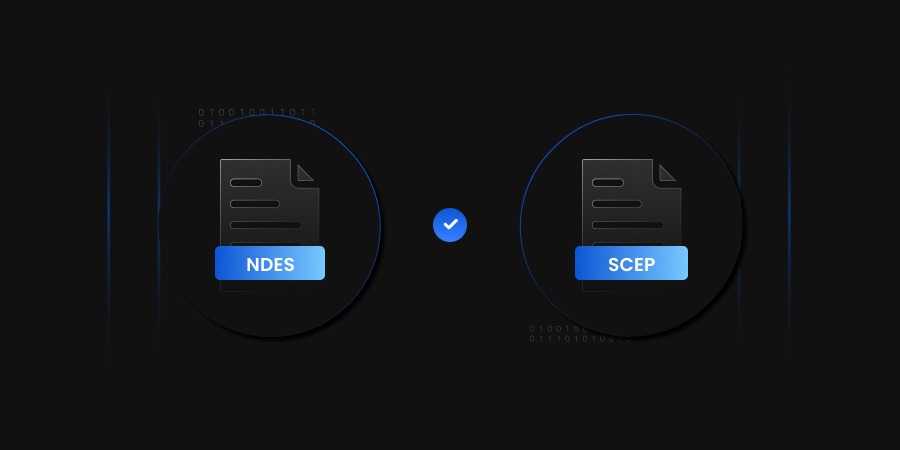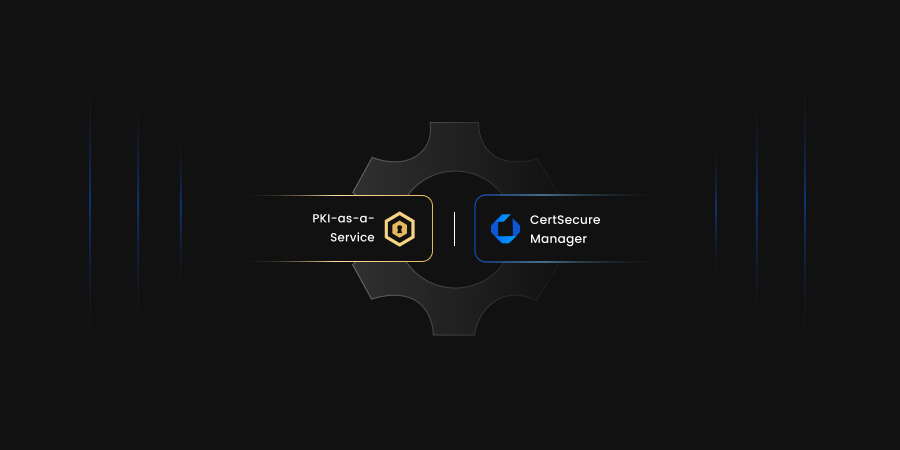A robust and centralized enterprise key management system is very important for the effective use of cryptosystems for security within the organization. Poor key management can compromise any strong encryption algorithm. A robust key management system includes key lifecycle management, and physical and logical access control to the key servers and the encryption keys.
Key Management System
Key management is the management of cryptographic keys throughout the entire key lifecycle including key generation, key distribution, key activation/deactivation, key usage, key replacement, key recovery, key revocation, key backup, and key destruction. Key management is considered to be the most challenging part of cryptography. Encryption keys must be generated, stored, and distributed securely. A Key Management System (KMS) manages the keys during their entire lifecycle and ensures that keys are only accessible to authorized users and systems. A KMS ensures the confidentiality, integrity, and availability of the keys. It also logs all the operations performed on the keys for audit and compliance requirements.
Importance of Enterprise Key Management Systems
Organizations face several challenges while controlling and managing their encryption keys.
- They need to manage a large number of encryption keys being used across different infrastructures.
- They need to secure the keys from malicious insiders and attackers.
- They need to support multiple heterogeneous environments consisting of applications, databases, and standards.
- They need to enforce access control policies to protect data.
- They need to comply with regulatory requirements.
Many organizations do not have complete knowledge of their keys, where they are generated, where they are stored, who can access them, what are they used for, if they have been regularly updated or not, if they are securely backed up or not, etc. All these gaps make the organization an easy target for attackers to compromise these keys. It is very important for an organization to understand where the encryption keys reside in order to protect them against hackers. A centralized and robust enterprise key management system is an integrated approach to manage keys in large organizations dealing with heterogeneous environments.
The enterprise key management system should provide the below functionalities
- Secure key generation process.
- Support for multiple key types and key lengths to support different applications.
- Multiple layers of security to protect keys.
- Strong access control mechanisms to secure access to keys.
- Integrate with different enterprise tools.
- Logging and monitoring capabilities for compliance requirements.
- Support different APIs to integrate with systems such as KMIP, REST, and PKCS#11.
- Automate tasks such as key backup, key rotation, etc.
- High availability and Business Continuity capabilities.
- Dual control for all key operations.
- Simple backups and recovery process.
Benefits of an enterprise key management system for an organization
-
Regulatory Compliance:
Organizations need to comply with regulatory requirements such as GDPR, CCPA, PCI-DSS, HIPAA, SOX and security standards such as ISO and FIPS. The regulations and security standards relevant to key management depends on the type of data that is being stored or processed and the sector the business operates in. A centralized enterprise KMS can help an organization pass compliance audits by demonstrating automatic logging of all security operations and enforcement of security policies.
-
Protection against Threats:
A comprehensive enterprise key management system can help an organization protect itself against security threats. By using enterprise KMS to prevent against the loss and misuse of keys, an organization can improve its security posture. The KMS helps to enforce the use of cryptographically strong keys, protect against theft, protect against human errors, protect against unauthorized access to keys, and rotate and delete keys as needed. All these functionalities of the enterprise KMS helps the organization to reduce risks and protect against threats.
-
Cost Reduction
An enterprise KMS helps in reducing cost of key management by automating key lifecycle management activities. Automation and scalability capabilities provided by KMS also helps in reducing the number of skilled resources needed to manage keys.
-
Efficiency
An enterprise KMS helps an organization streamline its entire key lifecycle management process, starting from key generation to key distribution to key destruction. This increases the overall efficiency of the organization’s security procedures. Regular automated backup and recovery procedures help an organization easily recover lost or compromised keys.
Use cases for an Enterprise Key Management System
The main drivers for implementing a centralized enterprise key management system within an organization are:
-
Prevention against data breaches
If an organization is concerned about data breaches and known security gaps, then it could become the main justification for deploying a centralized and robust enterprise key management system. The cost of deploying the enterprise KMS will be less as compared to the cost of a data breach, along with the fines, lawsuits, and the reputational damage of the organization.
-
Findings from Compliance audits
Findings from internal or external compliance audits that an organization has failed could become the main justification for deploying a centralized enterprise key management system. It enables the enforcement of policies and standards, and also provides auditing and monitoring capabilities that can be recorded and provided as evidence when needed.
-
Cost savings
Cost saving is another main justification for deploying an enterprise KMS. Centralizing and automating the key management process helps an organization manage keys across the heterogenous and complex environment of the organization.
-
Cloud migration
If an organization is migrating to cloud or using multi-cloud environments, then this could become the main justification for deploying an enterprise KMS to help manage keys across multiple cloud vendors and applications.
Conclusion
Proper management of encryption keys during their entire lifecycle is very important for the security of an organization, and its adherence to the regulatory compliances and security standards. A centralized and robust enterprise key management system is an effective and efficient way to secure keys and manage them during their entire lifecycle. This article discussed the challenges of managing keys, and importance and benefits of using a centralized KMS. The article also discussed the main drivers for deploying an enterprise key management system.




